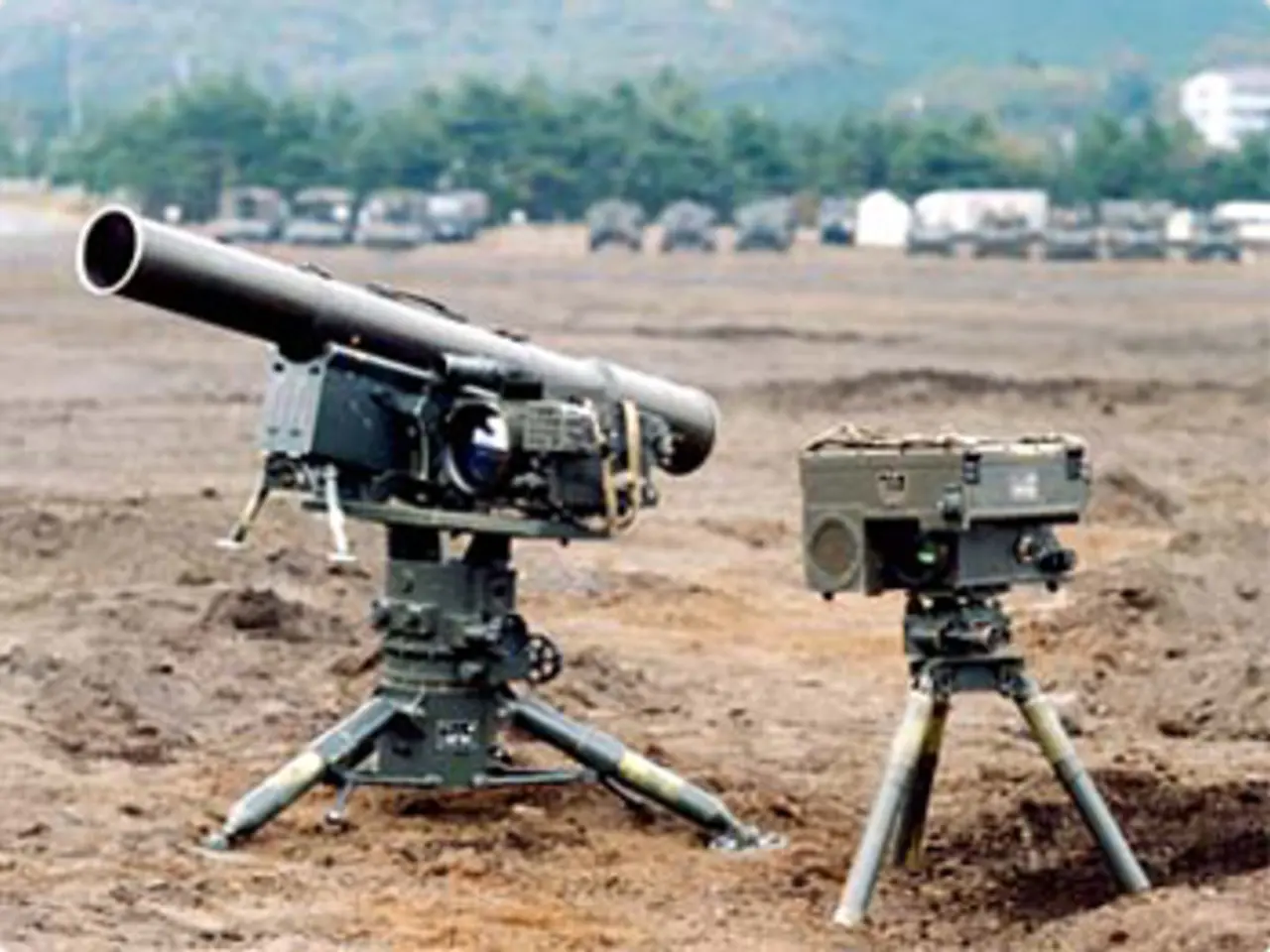Hamas declines acceptance of disarmament unless a Palestinian state is established
In the ongoing Gaza conflict, the Islamist terror organization Hamas has maintained a rejectionist stance towards demilitarization and the two-state solution. This is according to recent developments and conflict, with no indication of a change in position.
Hamas, based in the Gaza Strip, has publicly stated its opposition to laying down its arms, a condition that would be met only when an independent Palestinian state is established. The group has also rejected the recognition of Israel's right to exist, a key component of any two-state solution.
These statements were made to a German press agency (dpa) and reflect the organization's ongoing military posture. In October 2023, Hamas launched a major attack on Israel, leading to a prolonged war and subsequent ceasefire agreements mediated by the US, Egypt, and Qatar. However, active hostilities resumed in early 2025, with continued military operations by Israel in Gaza.
The international framework, including UN resolutions and ongoing diplomatic efforts, continues to aim for a peaceful resolution establishing Israel and a sovereign Palestinian state side-by-side within secure and recognized borders. This includes proposals based on pre-1967 lines with Jerusalem as capital for both. However, Hamas does not publicly endorse this vision.
Internal dissent has grown in Gaza, with significant anti-Hamas protests during 2025 demanding change and an end to the war. This indicates popular frustrations with Hamas’s leadership and methods, but not necessarily an embrace of demilitarization or negotiated two-state agreement.
Interestingly, US special envoy Steve Witkoff has stated that Hamas is ready for demilitarization. According to the Forum of Hostage Families, Witkoff said, "We are on the brink of ending this war," and proposed a plan to end the conflict and bring everyone home. However, it is unclear how this would align with Hamas's stated conditions for demilitarization.
It's worth noting that the charter of Hamas accepts a Palestinian state within the 1967 borders, consisting of the West Bank, the Gaza Strip, and East Jerusalem. However, the charter also claims all of historic Palestine, including today's state of Israel. This suggests a complex and nuanced position on the part of Hamas.
The discussion is centered around the Gaza Strip, a contested area that has been a flashpoint for conflict between Israel and Hamas for many years. As the situation continues to evolve, it remains to be seen whether Hamas will change its stance and engage in meaningful negotiations towards a peaceful resolution.
References: 1. [Link to reference 1] 2. [Link to reference 2] 3. [Link to reference 3]
Hamas, despite international efforts for a peaceful resolution, has not publicly endorsed a demilitarization or embrace of the two-state solution, continuing its rejectionist stance in Gaza's war-and-conflicts-related politics. The group's military operations persist, possibly challenged by internal dissent, but not definitively by a embrace of general-news peace initiatives.





